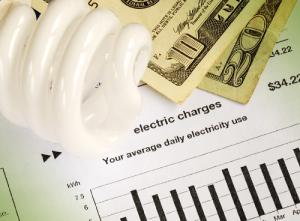February’s Consumer Price Index was reported on March 12. The overall CPI, for all goods and services, was up 3.2 percent as compared with a year earlier — February 2022. This follows the recent trend of moderate inflation.

The bellwether CPI for all items less food and energy was up 3.8 percent as compared with a year earlier. This stat has two components. Prices for commodities less food and energy commodities fell 0.3 percent year-over-year. While prices for services less energy services were up 5.2 percent. Including prices for shelter — such an important factor in inflation — which were up 5.7 percent, and transportation services, which were up 9.9 percent.
Food and energy prices are no longer driving inflation. Food prices were up only 2.2 percent. And energy prices were down 1.9 percent, also pulling downward the overall CPI.
The average price for utility natural gas service was down 8.8 percent as compared with a year earlier. The average price for utility electric service was up 3.6 percent. Which was more than the overall CPI increase of 3.2 percent noted above.
Utility services are a relatively small factor in the inflation index. Electric service prices are only one-forty-first of the overall CPI. Gas service prices are only one-hundred and forty-fifth of the overall CPI.
How does all this affect affordability? The good news is that average weekly earnings were up 3.7 percent in February year-over-year.
Since the overall CPI was up 3.2 percent, real average weekly earnings, that is, adjusted for inflation, were up by 0.5 percent. And since the average price for utility electric service was up 3.6 percent, the real price for electricity was down 0.1 percent.
Utility customers naturally perceive the cumulative effects of inflation, even moderate inflation. If, for example, electric rates increase 3.0 percent per annum, they’ll be 15.9 percent higher after five years and 34.4 percent higher after ten years. A rate of 15 cents per kilowatt-hour at the beginning of the ten years will have become 20.2 cents per kilowatt-hour at the end of the ten years.

